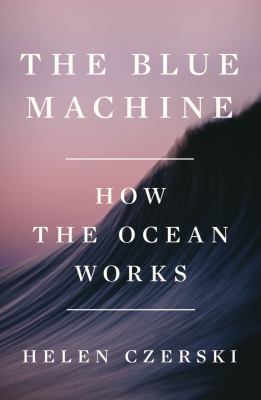The first Earth Day was held on April 22, 1970, when San Francisco activist John McConnell and Wisconsin Senator Gaylord Nelson asked Americans to join in a grassroots demonstration about air pollution, pesticides, and toxic drinking water. An impressive 20 million Americans went outdoors and protested together. President Richard Nixon soon created the Environmental Protection Agency, which was followed by the enactment of several laws, including the Clean Air Act, the Clean Water Act, and the Endangered Species Act.
As the 54th Earth Day approaches, what better way to celebrate than with some books about our very own home, Planet Earth?
- The quickening : creation and community at the ends of the Earth by Elizabeth A. Rush. In 2019, a ship set out for Thwaites Glacier, never before visited by humans. The goal was to study the deterioration of the "Doomsday Glacier" and its impact on rising sea levels. Rush provides an astonishing book about Antarctica, climate change, and motherhood during radical planetary change.
- Our moon : how Earth's celestial companion transformed the planet, guided evolution, and made us who we are by Rebecca Boyle. Humans have long used the Moon's waxing and waning to track the passage of time and plan for the future. It featured in the first religions and written language. Now, some want to profit from its mineral resources. Who gets to decide how we use a celestial body, and how do we protect this shared wonder?
- The blue machine : how the ocean works by Helen Czerski. Czerski illustrates the mechanisms behind our oceans, voyaging from its depths to tropical coral reefs, estuaries, and Arctic ice floes. Through stories of history, culture, and animals, she explains how water temperature, salinity, gravity, and the movement of Earth's tectonic plates interact to support life from plankton to giant sea turtles, whales, and humankind.
- Fire weather : a true story from a hotter world by John Vaillant. In May 2016, the city of Fort McMurray, Alberta, burned to the ground, forcing 88,000 people to flee their homes. It was the largest evacuation ever of a city due to fire. This book is a suspenseful account of one of North America's most devastating forest fires and a stark exploration of a new era of climate catastrophes.
- The science of spin : how rotational forces affect everything from your body to jet engines to the weather by Roland Ennos. From the solar system to spinning tops, hurricanes to hula hoops, power plants to pendulums, one mysterious force shapes almost every aspect of our lives: spin. Rotational force continues to baffle and surprise, and few people realize how it makes our planet habitable or how engineers have tamed it to make our lives more comfortable. The Science of Spin shows how spin is really what makes the world go round.
Library tip of the month: Looking to get involved with the library? Each of our libraries have Friends of the Library groups. Visit your local library or fvrlfoundation.org/friends-of-the-library-groups to learn more.
A version of this column first appeared in The Messenger, April 2024.
Find more book columns in our Off the Shelf blog.

